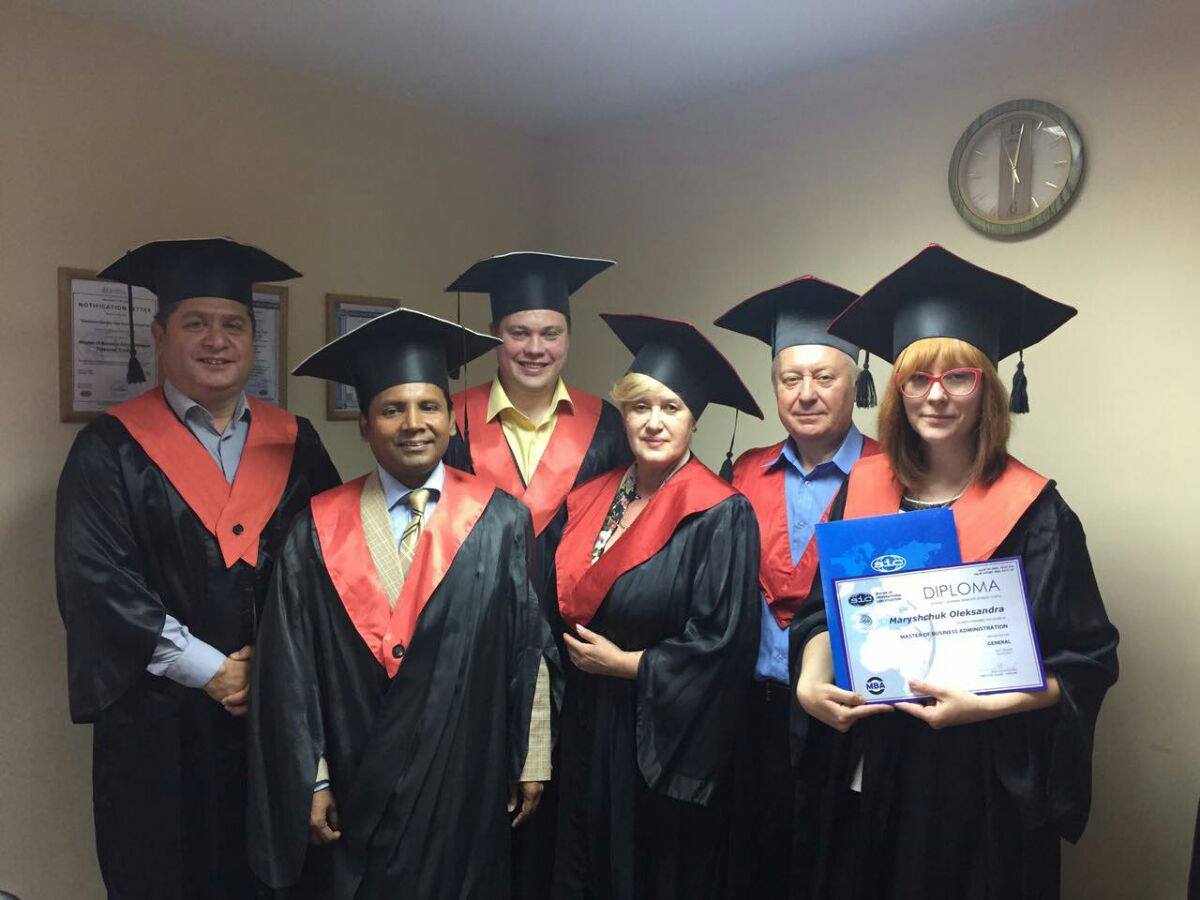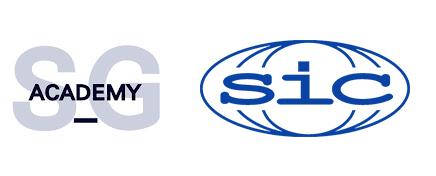Welcome to
SIC Academy
Knowledge helps people to rationally organize their activities and solve various problems arising in the process
SIC Academy – Online certification and training platform consisting of a variety of courses and different specialisations based on
ISO COURSES
SIC COURSES
OTHER COURSES
•SYSTEMIZED •INFORMATIVE •COHERENT
No Project Too Big Or Too Small
The SIC Academy was founded in 2003. Currently, the SIC Academy is part of the System of International Certification as a separate department.
The President is Dr. Mominul Hoque.
Training is carried out according to the programs developed by professional experts and registered in the System of International Certification (SIC).
The acquired knowledge will help you successfully manage your business, improve your qualifications and professional skills, and will be useful for productive implementation of the company’s activities, for the implementation and support of various management systems.
The training takes place in a format that is convenient for you. You can combine training with work.
On the completion of training, and in case of successful attestation, you will receive the relevant documents (diploma, certificates, etc.) that are entered in the international SIC registry.
YEARS OF SERVICE
People trained
Search courses
The role of an internal auditor in the organization’s management system takes a lot of responsibility and is one of the key roles for the effective functioning and sustainable development of the organization’s activities. An internal auditor must have the extensive knowledge, systems thinking, understanding and adherence to professional ethics, and many other qualities, as the internal audit process itself deals with a wide range of various aspects of activities. Based on the results of an internal audit, measures are developed to mitigate risks and to improve processes. The internal audit is necessary for the organization to prevent the loss of resources and to implement the necessary changes within the organization.
ISO 9001. Internal auditor of the quality management system
ISO 13485. Internal Auditor of the Quality Management Systems for Medical Device Manufacturers
ISO 14001. Internal auditor of the environmental management system
ISO 21001. Internal auditor of management systems for educational organizations
ISO 22000. Internal auditor of the Food Safety Management System
ISO 22301. Business continuity management systems internal auditor
ISO 27001. Internal Auditor of the Information Security Management System
ISO 27701. Internal Auditor of Privacy Information Management Systems
ISO 37001. Internal Auditor of the Anti-Bribery Management System
ISO 37003. Internal Auditor of Fraud Control Management Systems
ISO 37301. Compliance management system internal auditor
ISO 45001. Internal Auditor of the Occupational Health and Safety Management System
ISO 50001. Energy management systems Internal Auditor
SA 8000. Social Accountability Management System Internal Auditor
Completing the “External Auditor of Management Systems” course is important for several reasons:
1. Professional Development: The course provides in-depth knowledge and skills necessary for conducting external audits, enhancing your qualifications and competitiveness in the job market.
2. Compliance with Standards: Training helps to understand the requirements of international standards, which is critically important for ensuring the compliance of the organization’s management systems.
3. Certification: Reports from external audits form the basis for issuing certificates for the management system, increasing trust in the organization from clients and partners.
4. Improving Efficiency: External auditors contribute to enhancing the efficiency and transparency of the organization’s activities, which is important for its sustainable development.
This course is a necessary step for those who aspire to become highly qualified external auditors and make a significant contribution to the development of their organization.
ISO 9001 Quality management systems — Requirements
ISO 13485 Medical devices — Quality management systems — Requirements for regulatory purposes
ISO 14001 Environmental management systems – Requirements with guidance for use
ISO 21001 Auditor for the certification of management systems for educational organizations
ISO 22000 Food safety management systems — Requirements for any organization in the food chain
ISO 22301 Security and resilience — Business continuity management systems — Requirements
ISO 37001 Anti-bribery management systems — Requirements with guidance for use
ISO 37301 External auditor of the conformity management system
ISO 45001 Occupational health and safety management systems — Requirements with guidance for use
ISO 50001 Energy management systems — Requirements with guidance for use
Currently, a lot of successful companies have implemented or are in the process of implementing management systems in accordance with the requirements of international standards. And, of course, these companies have managers who support these systems. Practice alone, without any theory, however, would mean simply relying on intuition. It is important to understand, that a manager is primarily in charge of managing, and the quality of work depends on the quality of management. The «Manager» course will assist you in the transition from an intuitive level to a professional one.
ISO 9001. Quality management system manager
ISO 13485. Manager of the quality management system for medical device manufacturers
ISO 14001. Environmental management systems manager
ISO 21001. Manager of the management system of educational organizations
ISO 22000. Food Safety Management System Internal Manager
ISO 22301. Business Continuity Management Systems Manager
ISO 27001. Information Security Management Systems Manager
ISO/IEC 27701. Privacy information management system manager
ISO 37001. Anti-Bribery Management System Manager
ISO 37301. Compliance management system manager
ISO 45001. Occupational Health and Safety Management Systems Manager
It is a well-known fact that a top manager is the central figure of any company. The top manager’s goal is to organize and successfully promote business, as well as to ensure the effective functioning of management systems in the organization. In some cases, any type of change becomes a problem for managers, they lose sight on the goal of their activities, do not respond to them in a timely manner, and sometimes, do not react at all to changing circumstances, they try to stay away from innovations by convincing themselves that it is not for them. How to not be afraid of changes, how to analyze the context of the organization (internal and external), how to correctly formulate goals and manage risks – you will get acquainted with these and other aspects after completing the “Practices for supporting and improving management systems in accordance with the requirements of ISO standards” course.
ISO 9001. Practices for supporting and improving quality management systems
ISO 21001. Practices for Supporting and Improving Management Systems for Educational Organizations
ISO 22000. Practices for supporting and improving quality management systems for food safety
ISO 22301. Practices for supporting and improving quality management systems for business continuity
ISO 37001. Practices for supporting and improving quality management systems for combating bribery
ISO 37301. Business management practices
ISO 50001. Practices for supporting and improving quality management systems for energy management
SA 8000. Practices for supporting and improving quality management systems for social security
SIC.COVID-FREE:2020 – COVID-19 countermeasures system commissioner in the organization
SIC.SDGs: 2022 – Sustainable Development Goals Achievement Coordinator
ISO 37301 – Sanctions compliance system commissioner in the organization
ISO 31000 – Risk management system commissioner
About us
SIC registered courses provide valuable, quality material and tools to grasp a deeper understanding of the different standards and audit procedure
Traininig companies provide trainings on programs which are registered in the SIC System.
SIC ACADEMY assesses the competence of persons who have finished a course in a training company (full-time/online form) by utilizing special assessment methods and mechanisms established for a specific certification scheme.
Online training is the ideal solution for independent and goal-oriented people. Optimal course formats and technology allows to study whenever and wherever one desires.
Different assessment methods and mechanisms are used for different certification schemes (testing, exams, practical work, other). Depending on the certification scheme, various mechanisms and assessment met.

